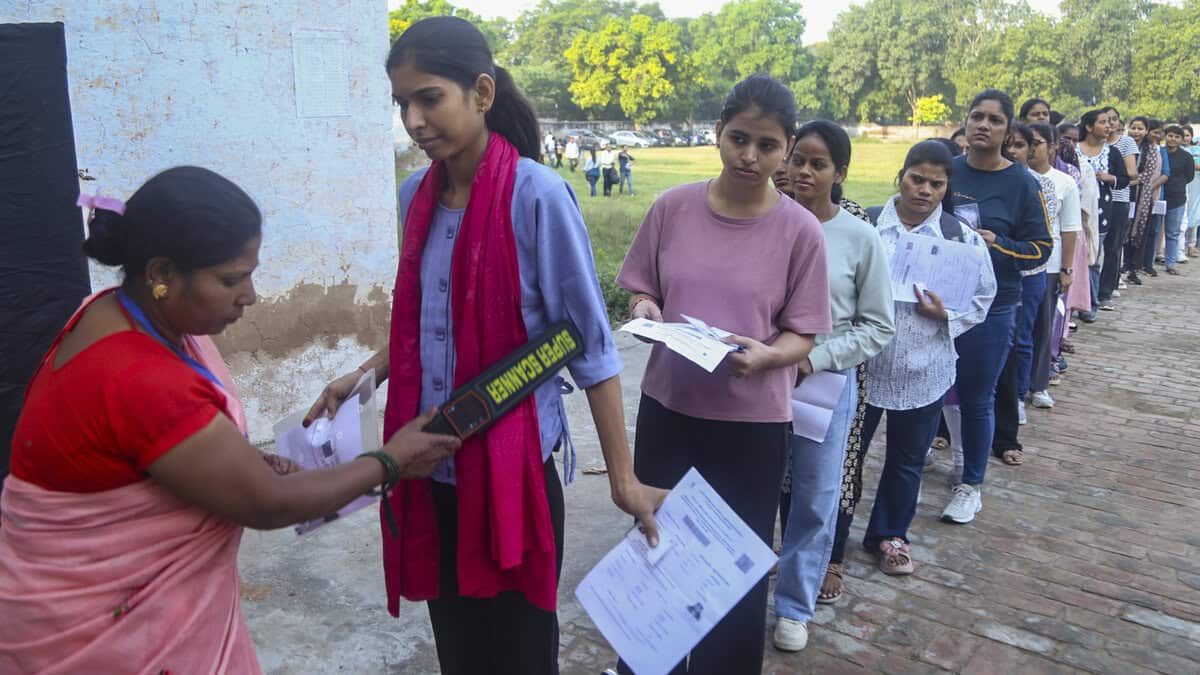Commenting on the present state of India-Bangladesh relations, Bangladesh Army Chief General Waker-Uz-Zaman stressed that the two countries have a “give and take relationship” which must be based on fairness and equality.
India-Bangladesh relations: Bangladesh Army Chief General Waker-Uz-Zaman broke his silence on the decaying India-Bangladesh relations, which have taken a nosedive since the fall of the Sheikh Hasina regime in August last year. In in interview with the Daily Prothom Alo, the Army chief called India an ‘important neighbour’ on which Bangladesh is dependent in several ways.
India an ‘important neighbour’
Commenting on the present state of India-Bangladesh relations, General Waker-Uz-Zaman stressed that the two countries have a “give and take relationship” which must be based on fairness and equality, and Dhaka must also ensure to maintain good ties with New Delhi based on these principles.
“India is an important neighbour. We are dependent on India in many ways. And India is getting facilities from us too. A large number of their people are working in Bangladesh, formally and informally. Many people go for medical treatment to India from here. We buy a lot of goods from them. So India has a lot of interests in Bangladesh’s stability. This is a give-and-take relationship,” Bangladesh’s Chief of Army staff said.
Ties must be based on fairness, equality
General Zaman said that India-Bangladesh relations must be based on fairness and the Bangladeshi citizens should not feel that New Delhi is “dominating” the balance.
“This must be based on fairness. Any country will want to get benefits from the other. There is nothing wrong in that. If we want extract our benefits, then we are to blame too. We must look into these matters. We have to maintain good relations based on equality. The people in no way should feel India is dominating over us, which goes against our interests. People should not feel this in any way,” he stated.
India, Bangladesh should protect each other’s strategic interests
Asked about India seeking cooperation from Bangladesh to ensure security in northeast India, the Army chief assured that Bangladesh will not do anything that goes against the strategic interests of India and expect the same from New Delhi, adding that both nations should after their interests with equal importance.
“See, the thing is that we will not do anything with our neighbour that goes against their strategic interests. At the same time, we will expect that our neighbour does nothing that is contrary to our interests. When we look after their interests, they will look after our interests with equal importance,” General Zaman said.
The Bangladesh Army Chief noted that India-Bangladesh relations must be on equal footing. “Unrest will not be created in the Chittagong Hill Tracts. The stability along the Myanmar border will not be disrupted either. They will not kill our people along the borders. We will get our fair share of water. There is no problem with this. Let the relations be on equal footing,” he said.
‘Historic’ mass movement led to Hasina’s fall
Asked about the last year’s student protests which snowballed into a mass movement that toppled the Sheikh Hasina regime, General Waker-Uz-Zaman called the event “historic”, and noted that Bangladeshis are now eagerly awaiting a free, fair, and peaceful election in the country after decades.
General Zaman said the Muhammad Yunus-led interim government is working towards that main objective of conducting an election in Bangladesh, and assured that the Army will cooperate fully in implementing the election framework drawn up by the interim govt.
India-Bangladesh relations at all-time low
India-Bangladesh relations have hit an all-time low after the ouster of former Prime Minister Sheikh Hasina, and an interim government led by Nobel laureate Muhammad Yunus, coming to the helm in Dhaka.
Bangladesh has witnessed widespread communal violence against minorities, especially Hindus, which has soured Dhaka’s ties with New Delhi, with the latter accusing the Yunus-led interim government of not doing enough, and turning a blind eye to the atrocities perpetrated by radical Islamist elements against the minority Hindu community in the country.
(With inputs from agencies)
















































